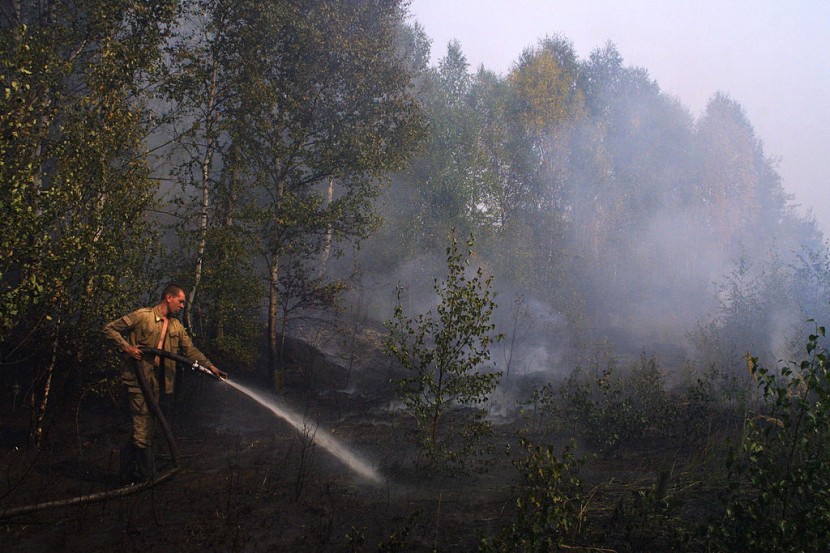
On Wednesday, Russia's central regions battled "extreme" wildfires sparked by an unprecedented heatwave, which came after forest fires related to climate change ravaged Siberia for most of the summer. The emergency ministry reported that authorities were battling 15 wildfires in Sverdlovsk's Urals area.
A heatwave had created an "exceptional fire threat" in the region, which is located on the border between Europe and Asia, according to the report. Images on social media showed flames on both sides of a federal highway connecting the regional capital Yekaterinburg and the Urals city of Perm, requiring the route to be closed for most of the day.
Meanwhile, fires in Mordovia, a province southeast of Moscow, had gotten so fierce that firefighters were forced to flee a "ring of fire," according to the ministry. Nine planes from the emergency ministry, the defense ministry, and the Russian National Guard sprayed 129 tons of water on a massive wildfire expanding to neighboring Mordovia in the Nizhny Novgorod area east of Moscow.
Russia's central region experiences massive wildfires
The fire was put out by 1,200 firefighters, the emergency ministry said. On Tuesday, Russian President Vladimir Putin committed hundreds of millions of dollars to protect the country's forests, saying the country must learn from the "unprecedented" wildfires that consumed large swaths of Siberia.
Nearly 300 wildfires are allegedly raging across Russia, with the biggest affecting Yakutia, a territory approximately the size of Argentina in terms of land and people, as per The Daily Sun. The region, formally known as the Sakha Republic, is noted for huge seasonal temperature fluctuations, from bone-chilling winter cold to stifling summer heat, with roughly 40% of its land lying above the Arctic Circle.
Much of the land is covered in thick taiga: dense, wet coniferous woods mixed with boggy permafrost, which faces its threat from increasing temperatures. The woodlands, which are home to enormous mosquitos and are mainly unoccupied, are vast and prone to fire during the yearly fire season, Big News Network reported.
According to the regional Emergency Situations Ministry, around 1,300 square kilometers were actively burning as of August 24. This is a significant improvement from early July, when officials advised the approximately 300,000 residents of the regional capital, Yakutsk, to put wet towels over windows and doors to prevent smoke from seeping in and to wear masks while stepping outside due to a blanket of smoke.
Officials urged for assistance
A fire in the Ural Mountain city of Yekaterinburg, 3,800 kilometers to the west, sent clouds of smoke and flames soaring over a key highway, halting traffic. There have also been fires in Karelia's northern area, the middle Volga region, and elsewhere.
The Sakha Republic is engulfed in huge clouds of smoke, as shown in a satellite picture obtained on July 5. The smoke from the Yakutia fires was so thick that experts were able to track it to the North Pole for the first time.
Officials in hard-hit areas have appealed to Moscow for financial and economic assistance in repairing the damage. Climate change, negligence, and underfunded forestry management services are to blame for the massive fires that have swept across Russia's immense area in recent years, according to experts.
Russia's forestry agency said fires have burned over 173,000 square kilometers (67,000 square miles) this year, making it the second-worst season since the turn of the century. Putin, a previous denier of man-made climate change, has urged authorities to do all necessary to assist Russians displaced by the massive fires, as per PHYS.org.
Related Article: Tropical Storm Batters Haiti After Deadly Earthquake, Complicates Recovery Efforts as Heavy Rains Deluge Devastated Nation
© 2026 HNGN, All rights reserved. Do not reproduce without permission.








